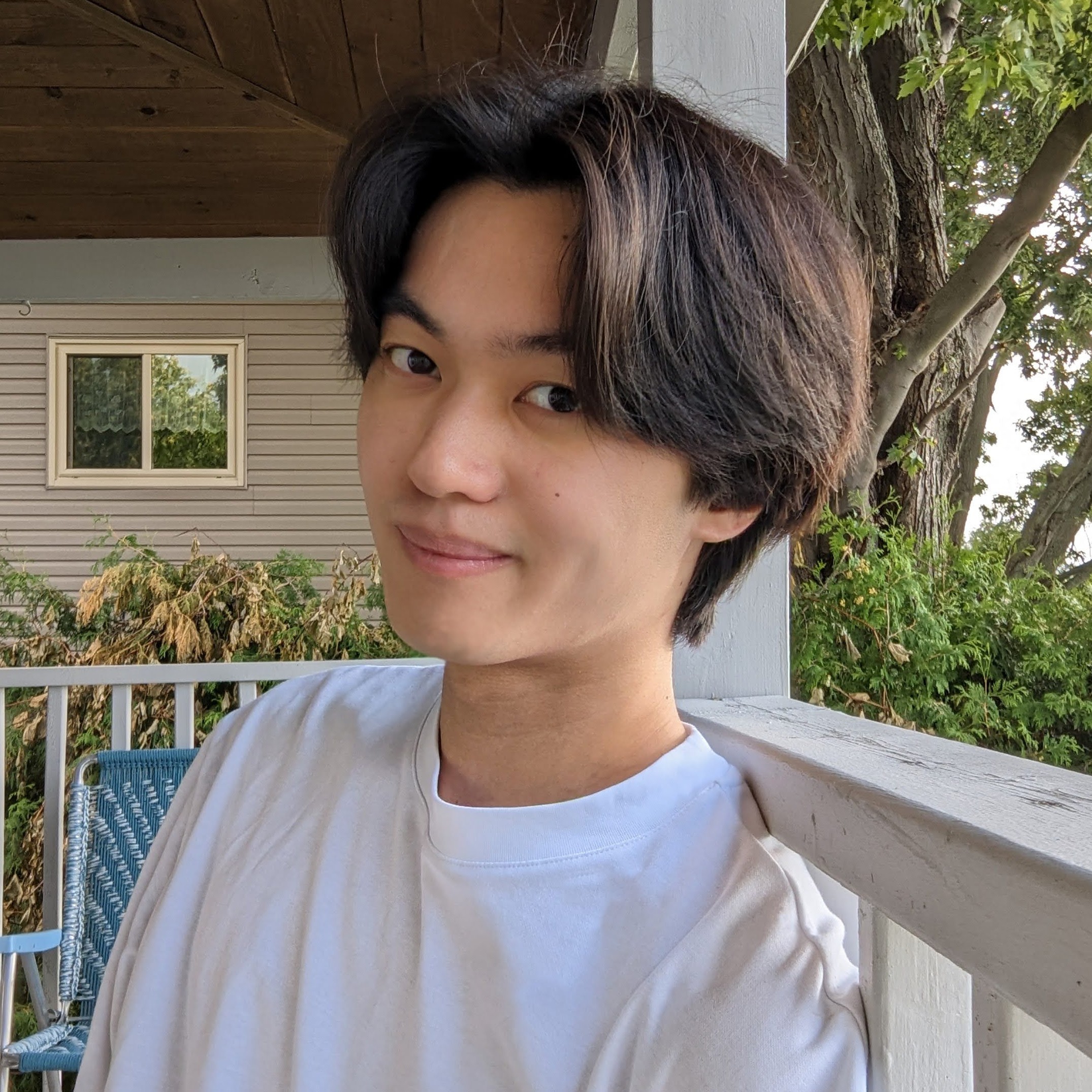About This Project
Cultivated seafood research lags behind in large part due to limited data, especially on a single-cell level. Our project aims to fill this gap by generating transcriptomic & epigenomic data using the KFE-5 (killifish) cell line. We'll evaluate variability in long-term proliferation/differentiation potential, and use this data and subsequent bioinformatics analysis to lay the groundwork for optimizing cell line performance, serum free media development, and antibody development.
Ask the Scientists
Join The DiscussionWhat is the context of this research?
Many of the key developments required to reach production-scale cultivated seafood will be driven by the large-scale generation/analysis of multi-omic data. This data provides snapshots of the underlying biology of a system, serving as the scientific foundation for work such as establishing novel cell lines and improving existing ones. Despite this, to the best of our knowledge, there are no scRNA datasets in cultivated seafood, and no scATAC data in the entire field of cultivated meat. Mosa Meat has executed the only related work we could find, in bovine satellite cells. We intend to build off their work in a cultivated seafood context, conducting joint scRNA/ATAC-seq on an inhouse fish cell line and laying the groundwork for tangible process improvements.
What is the significance of this project?
There are nearly no relevant myogenic fish cell lines available, with some exceptions (ex: mackerel), and therefore limited understanding of long-term variation in cell proliferation/differentiation relevant to the cultivated seafood process.
We are in the unique position of having such a cell line, KFE-5, developed by our mentor Dr. Vo, available. Through computational analysis of our generated data, we will characterize different cell subtypes, identify genetic/epigenetic markers predictive of cell performance, and optimize experimental conditions to drive cells into a myogenic phenotype better and improve proliferation speed. Given how little is known about fish biology, this will be crucial for future work in other species.
What are the goals of the project?
We will purchase components for a killifish growth medium and two P3 reagent kits. This will allow us to culture the killifish cell line and extract samples at 3 timepoints: 24 hours, 72 hours, and 7 days post-initial plating (performed twice for experimental robustness). The samples will be sent in for scRNA/scATAC sequencing, with an output of two single-cell transcriptomic and epigenomic datasets. Our bioinformatics analysis will characterize the cell subtypes, differential expression profiles, regulatory elements, and relevant surface receptors, which we will use to generate follow-up experimental hypotheses. We will also attempt to train a foundational single-cell omics ML model to understand more complicated biological mechanisms. Everything will be open-sourced and published.
Budget
Our in silico work has been fully funded via access to an HPC cluster with GPUs. The in vitro portion of our project is 3 stages: cell culturing, library preparation, and scRNA/scATAC sequencing.
The requested funding will cover the first stage (cell culturing) and the third stage (scRNA/scATAC-seq sequencing). The cost of the library preparation stage will be covered by other sources, including existing funds.
We will have enough for 6 samples (1 sample each for 3 timepoints, two experiments), with 6000 cells/sample sequenced, at a depth of 30,000 reads/cell. We remain open to adjusting these numbers should we find a better configuration or receive extra funding. All pricing information was determined in correspondence with McMaster University’s Genomic Facility. A more detailed budget breakdown of the three stages mentioned can be found in the lab note.
We have access to all other needed lab equipment and facilities at the University of Waterloo and Wilfrid Laurier University.
Endorsed by
 Project Timeline
Project Timeline
The remainder of 2023 will be used to gather funding. The project will commence in January 2024. Running two killifish culturing experiments should take 24 days. The genomic facility we are in contact with for sequencing has a turnaround time of 2-3 weeks. The bioinformatics analysis is the most variable timewise especially if extensive data processing is needed. By June 2024, we hope to complete our bioinformatics analysis and look to start open-sourcing our data, models, and methods.
Nov 06, 2023
Project Launched
Jan 08, 2024
Project start
Jan 31, 2024
Finish purchasing supplies/resources and assembling required personnel
Feb 24, 2024
Finish culturing killifish cells and sample extraction (~24 days for 2 experiments)
Feb 26, 2024
Send samples to a genomic facility for library preparation and sequencing (~3 weeks turnaround time)
Meet the Team
Team Bio
We are a team of 7 people from the University of Waterloo and Wilfrid Laurier University working on cultivated seafood alternative protein research. Together, we have expertise in molecular biology, antibodies, fish cell line development, computational biology and modeling, software engineering, and bioinformatics.
Kevin Shen
As an undergraduate student in computer science at the University of Waterloo, Kevin has 8+ years of software engineering, data science, and bioinformatics experience. He has built computer vision models for automating tumor delineation for radiotherapy at the University Health Network, led open-source machine-learning projects at Weights & Biases, and worked on product reliability engineering at Palantir. Most recently, he helped construct sequencing data analysis pipelines for a microbiology lab at the University of Waterloo.
https://www.linkedin.com/in/kevinkwshen/
Brian D
As a professor of Biology and Research Chair in Fish and Environmental Immunology at the University of Waterloo, Dr. Dixon’s work focuses on fish immunity and the influence of environmental factors, such as antimicrobial peptides, the development of diagnostic assays for assessing fish health status, and applying fish immunology research, to improve aquaculture production worldwide. He has developed several cell lines and over 40 antibodies to fish immune and stress molecules, with several commercially available through Cedarlane Laboratories. He has published over 150 papers and book chapters and over 280 conference presentations, is the Co-editor-in-chief of both Developmental and Comparative Immunology, and Fish and Shellfish Immunology Reports, and was given a 2014 Natural Sciences and Engineering Research Council of Canada Synergy award for collaboration with the aquaculture industry.
https://uwaterloo.ca/biology/profile/bdixon
Nathan Vo
As a professor at Wilfrid Laurier University, Dr. Vo has 15+ years of experience in establishing/characterizing primary/immortalized cell cultures from numerous organ systems from over 20 fish species, including trout, carp, walleye, and killifish. To date, he has created over 40 fish cell lines, including the first myogenic cell line ever established for fish (embryonic myoblast cell line KFE-5), from killifish. He has served as an advisor/consultant for two cultivated seafood startups, and Cell Ag Tech.
Rikard Saqe
As an undergraduate in computer science and biology at the University of Waterloo, Rikard has 2+ years of computational biology experience analyzing omics data. He has built key drug discovery pipelines for a clinical-stage biotech company, wrote a research paper on applying GNNs to transcriptomics, transformed raw omics data into an integrated analysis platform in an academic lab via transfer learning/NLP, and has worked with protein sequence to structure prediction models.
Additional Information
Detailed pricing information & cost breakdown can be found in the lab notes. A detailed bioinformatics plan can also be found in the lab notes which explains how our bioinformatics work will give us the answers to our questions.
One of the main authors of the “Derivation of a continuous myogenic cell culture from an embryo of common killifish, Fundulus heteroclitus” publication, Dr. Nguyen Vo, is a member of our project. Dr. Vo has developed an embryonic myoblast cell line (KFE-5) from killifish, which appears to be the first continuous fish myogenic cell line ever made. The cell line consists of two core phenotypes: mononucleated fibroblastic cells, and elongated myoblastic cells with the capability to differentiate into myocytic cells. Our scRNA/scATAC-seq data will help us reveal the pathways involved with the differentiation of the cells into these two phenotypes.
The researcher behind the single-cell analysis of bovine satellite cells project, Dr. Tobias Messmer, is an official advisor on our project.
Michael Saad, the only academic researcher who has done any level of transcriptomic analysis and successful cell line development for cultivated seafood, is an official advisor on our project.
Should our project be successful, we plan to extend our research to three more species: trout (Oncorhynchus mykiss), carp (Cyprinus carpio), and walleye (Sander vitreus). These species were selected based on many factors such as ease of access to organisms, commercial value, team expertise, and existing literature support. Our team will also benefit from having access to the University of Waterloo’s aquatic animal facility and a strong network of professors who specialize in fish biology.
Another future application that can be explored is using the data collected to guide the development of antibodies. These antibodies can then be used to isolate satellite cells or other desired cell types for the above three species.
Our sequencing will be outsourced because our university does not have single-cell sequencing capabilities and expertise. Our top choice is McMaster University’s Genomics Facility: https://genomics.healthsci.mcmaster.ca/services/10x-single-cell-sequencing/. Outsourcing will allow us to focus on our core expertise in bioinformatics/computation and fish biology. It will also help us save costs since we won’t need to build up the sequencing infrastructure from scratch. We have budgeted enough funds to run the entire experiment twice (from culturing to sequencing) to ensure the reliability of the results.
Project Backers
- 23Backers
- 100%Funded
- $10,255Total Donations
- $445.87Average Donation



